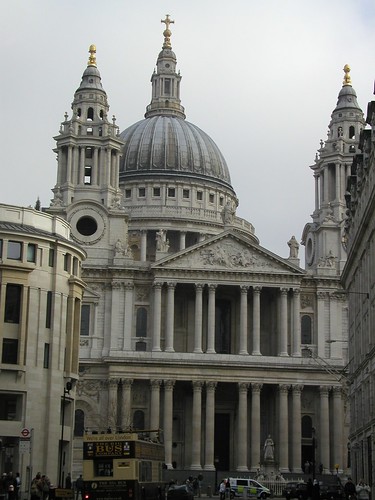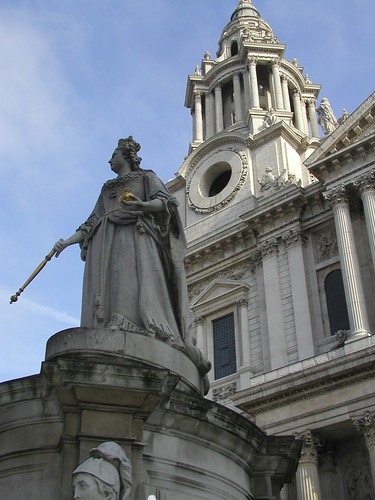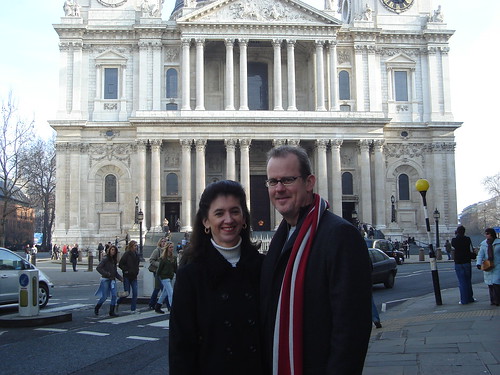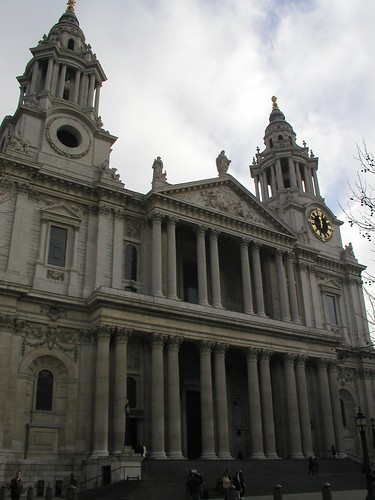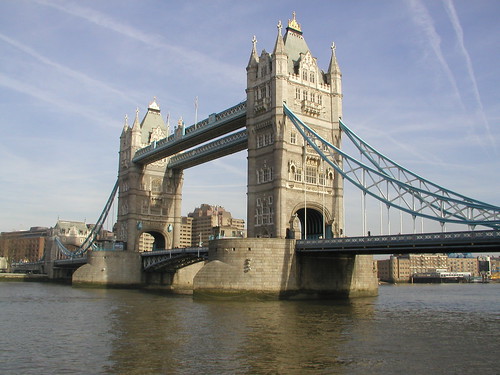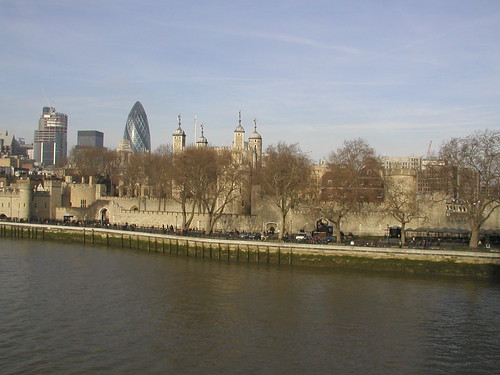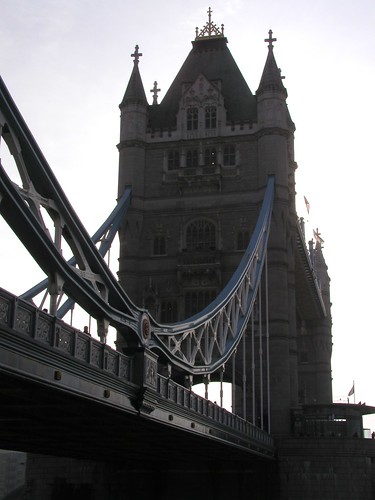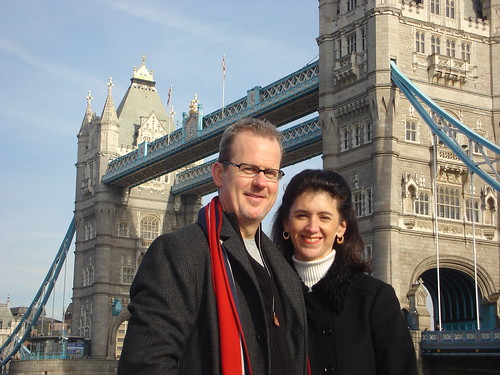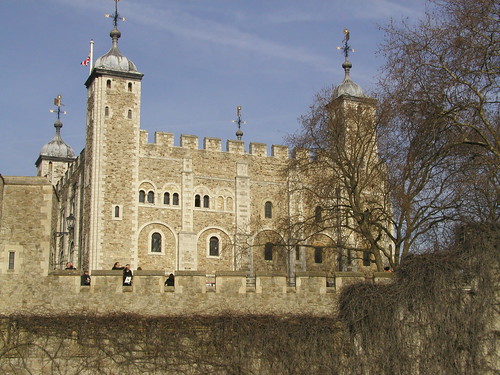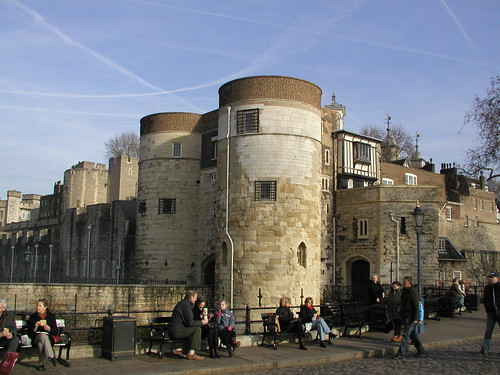Monday, February 26, 2007
What's in a name?
Well, I had that thought today as I read through the hotel magazine in my NL hotel. Why is the Netherlands called "The Netherlands" and no longer "Holland"?
Answer: The official name of the the country is actually The Kingdom of The Netherlands. The Dutch themselves call their country "Nederland". Actually, Holland is only used to refer to 2 of The Netherlands' 12 provinces. Apparently, the provinces of South-Holland and North-Holland contain the country's most highly urbanised area and do not refer to the majority of the country.
Flash for my American friends: When you visit The Netherlands, please don't refer to the country as Holland. Trust me on this one...it would be like referring to all of the US as Texas.
Roughly...
Wednesday, February 21, 2007
Love the Brits' vocabulary
Example 1: When somebody does something well, the Brits respond by saying "brilliant".
Example 2: Somebody has a bit of rough and tough day, they talk about how "their day was just shattered".
Example 3: Good buddies and nice guys are "good blokes" or "nice chaps".
Example 4: Somebody is "top shelf" when they are top notch or good at their job.
Example 5: Something is all "bloody, well, and good" when speaking about something in a slightly exasperated tone....and it's really not all well and good.
Monday, February 19, 2007
Rosenmontag
Sadly, my company does not provide a “day off” to enjoy, even though most companies in the area actually do give employees the day off, including the Budman’s firm. Partly to commiserate with me since I was in full work mode and partly due to the fact that he has a major impending work deadline, he went into the office to catch up on work as well.
Which is, quite frankly a bummer, because he has never been able to attend a Rosenmontag parade. Oh well, there is always next year.
Here are photos from last year’s parade…just to give you a feel for the event.
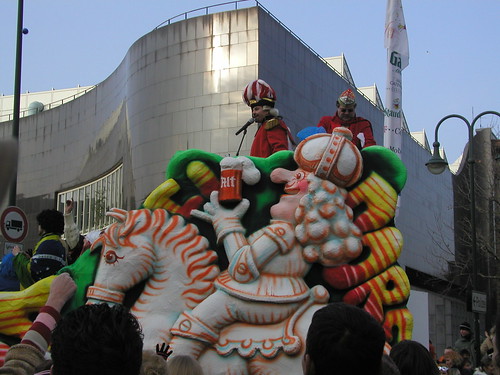
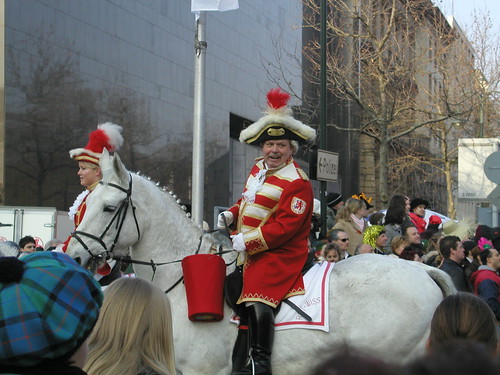
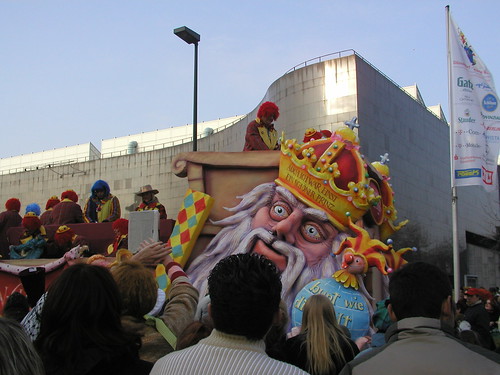
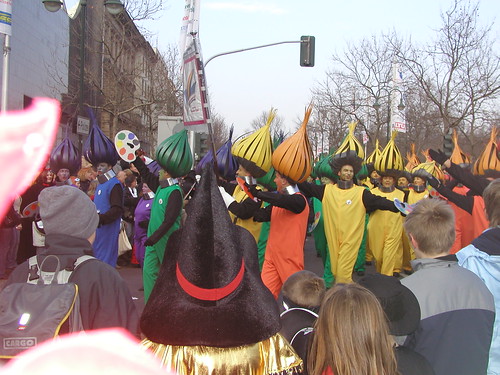
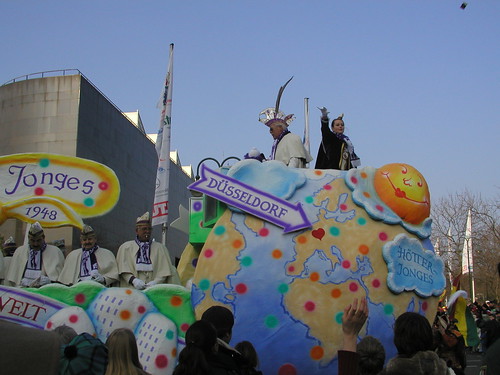
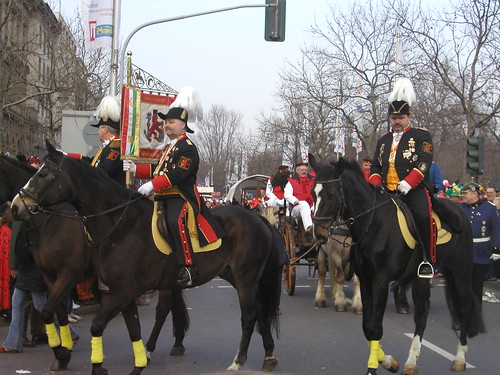
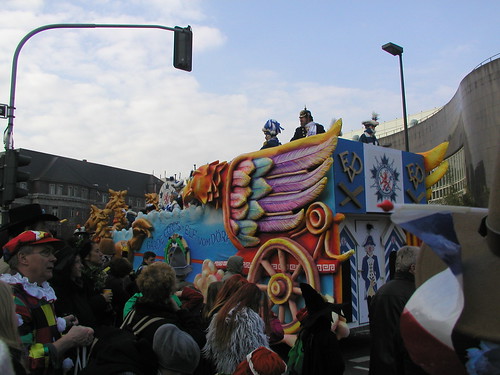
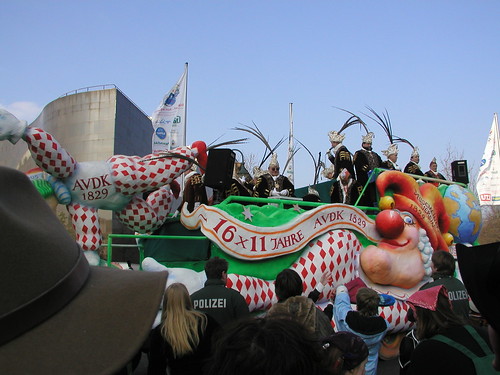
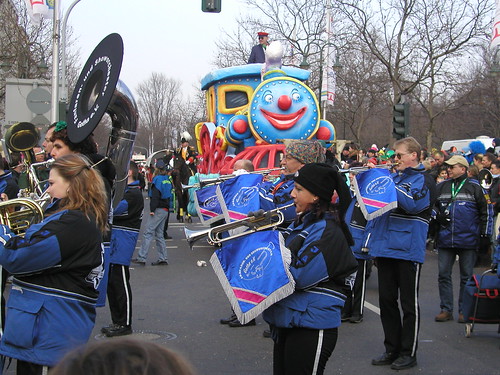
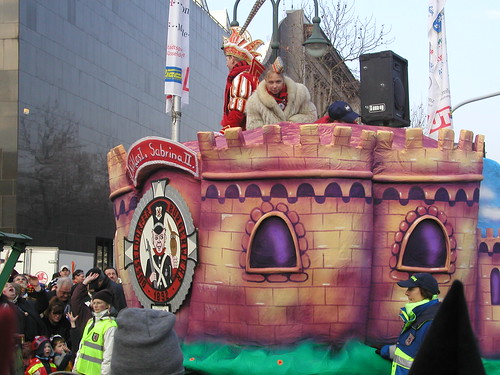
Sunday, February 18, 2007
Year of the pig
This year, Chinese New Year kicks off today, February 18th, with this year being the “year of the pig”. The pig is one of 12 animals (or mythical animals in the case of the dragon) on the 12-year cycle of the Chinese zodiac which follows the lunar calendar. According to Chinese astrology, people born in pig years are polite, honest, hardworking, and loyal. They are also lucky, which is why many Chinese like to have babies in a “pig year”.
Celebrations during Chinese New Year obviously center on family: visiting with relatives, travelling great distances to be with extended family, cleaning of family tombs, etc. Other events include the requisite visits and offerings at local temples, as well as the more secular celebrations of fireworks and dragon dances.
I must confess to being a bit nostalgic today as I thought back to previous years and the wonderful memories of Chinese New Year, Lunar New Year, and Chuc Mun Nam Moi…just to name a few. Here is a photographic potpourri of some of those memories (and yes, that is me with very short hair).
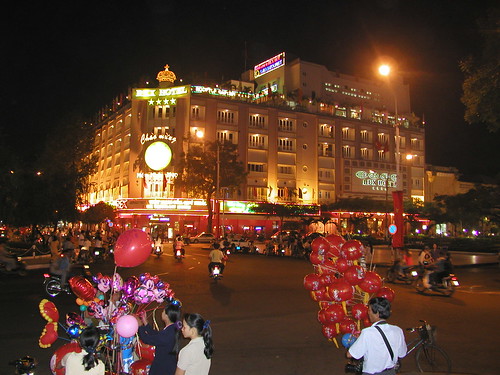




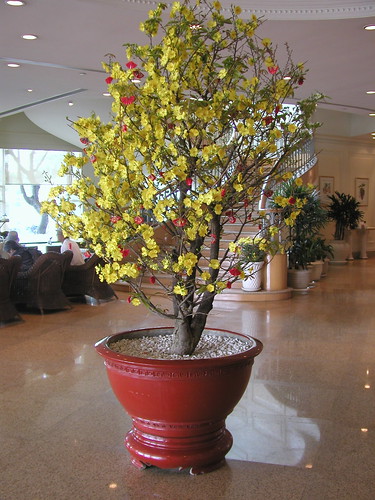
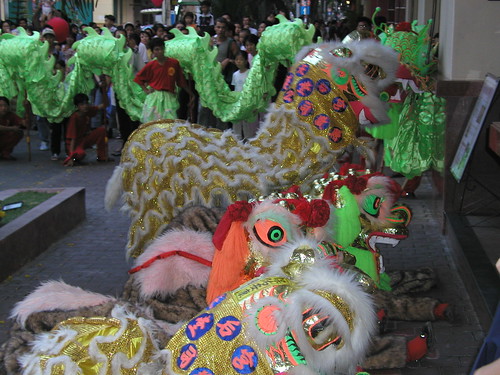
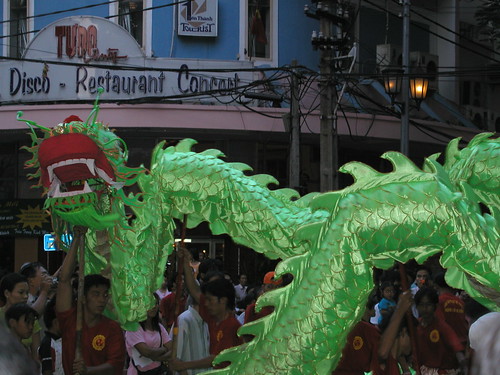

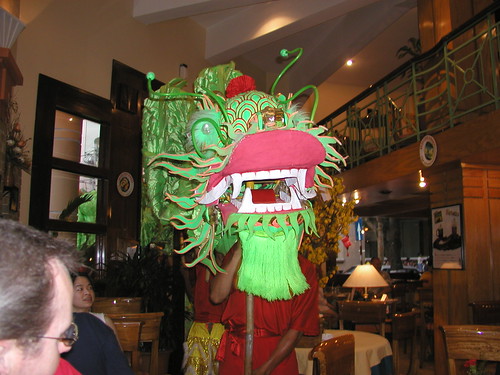
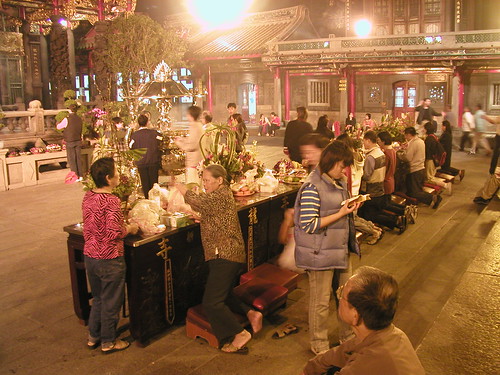

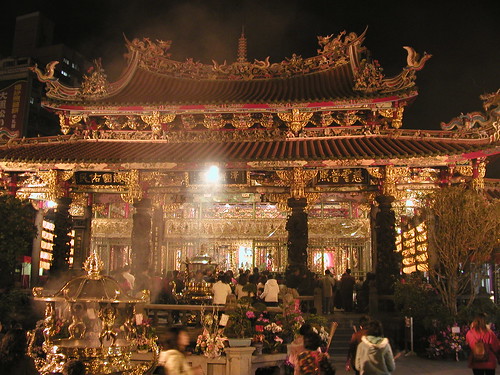
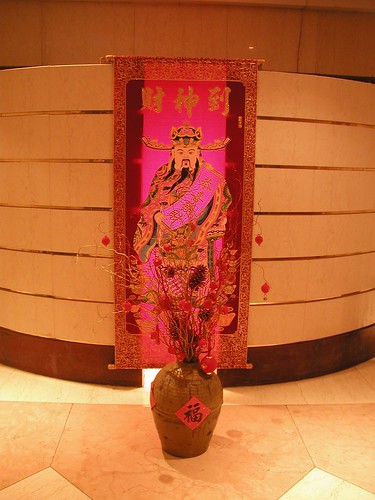
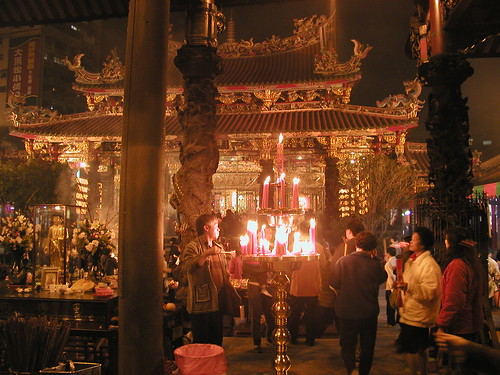
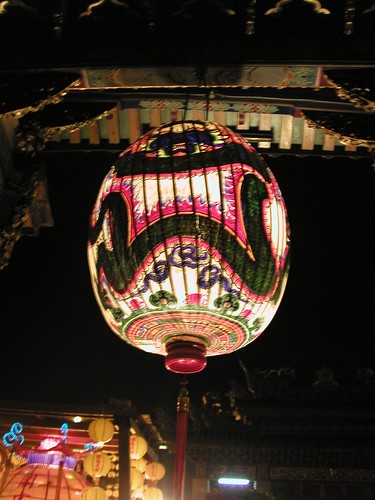
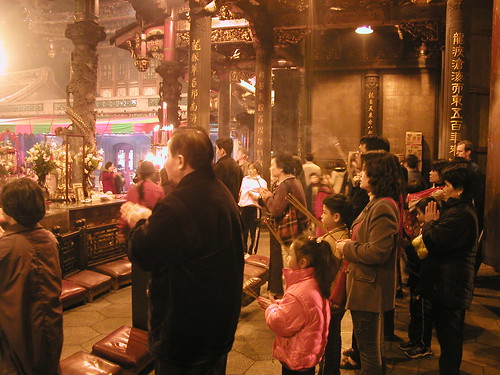
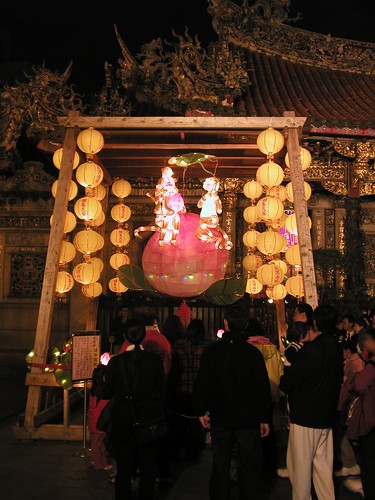
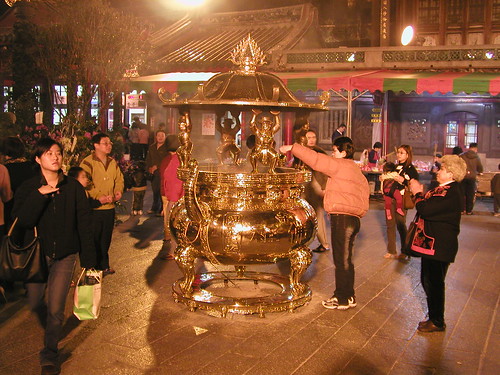
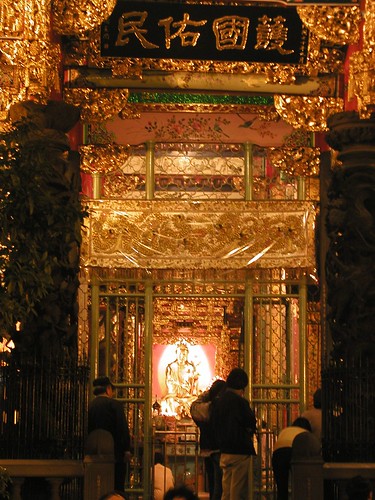
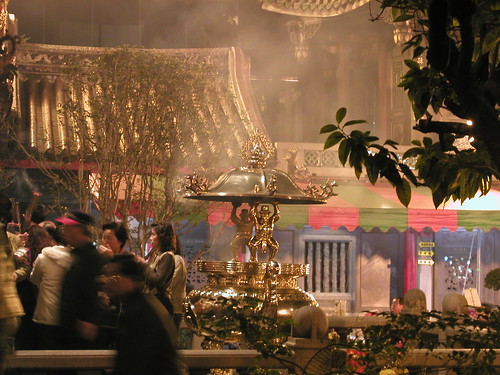
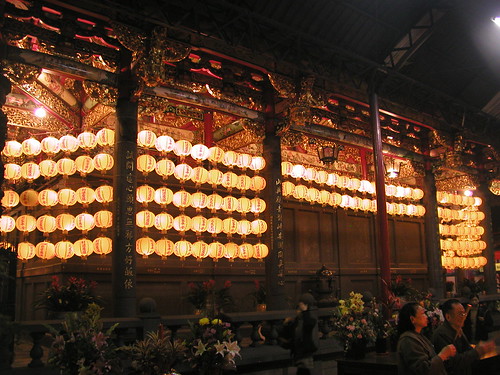
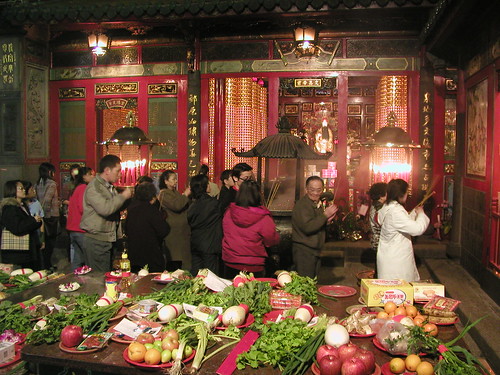






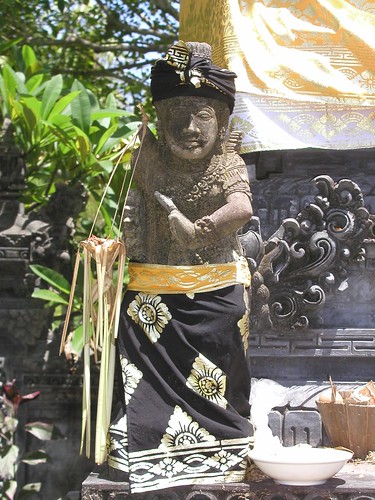
Friday, February 16, 2007
Hand that gal a pair of scissors
For those of us in Catholic states in Germany, a big event is upon us: Karneval, or Fasching. The closest thing I can liken it to is Mardi Gras in N’awlins because there are the requisite parades, parties, costumes, and general funloving mayhem all culminating during the period of time leading up to beginning of Lent. This year that happens to occur in February. Nowadays, no matter what its origins, Fasching is “party time” in Germany.
Several traditions of Fasching prevail including:
- Many Karneval costume parties are held in January and February this year. Lots of costumes featuring clowns, princes, princesses, and German nobility, just to name a few, can be seen.
- Many towns have Karneval clubs. Each year, a Prince and Princess Karneval are chosen from the community. As part of their “reign” they will lead the Karneval parades and take part in many community activities.
- Karneval clubs also sponsor Sitzungen, big community gatherings usually held in large halls (get a mental image of a bunch of costumer, beer drinking revelers VFW halls in the US and you’ve got the idea) where local entertainment (a.k.a. oompah bands) get the crowds going and comedians poke fun at local and national politicians.
Which brings me to a little quirky piece of trivia to share regarding another Karneval custom: the cutting of the necktie.
Explain, you say. Happily.
Men wearing neckties on the Thursday before Ash Wednesday (which was yesterday, February 15th) must beware. Weiberfastnacht, or “ Woman’s Karneval” is a day where women supposedly, and I quote, “storm offices and take over”. No where was I actually able to obtain a literal translation of exactly what that entailed. One element, however, involved arming themselves with scissors and cutting off the neckties of any men they encounter.
Supposedly, this is a throwback to the tradition known as "storming of the fools" at German city halls, dating back to the 14th century. It was a type of grass-roots, citizen's initiative organized by women who were allowed to have just one day of rule over their spouses. Today, the only remnant of the tradition to survive today is the cutting off of men's neckties. Guess we have “come a long way, baby”!
Putting a quite personal spin on this, I work in a remote office so my male colleagues were clearly safe from the Hachie Gal and her scissors. The Budman chose to avoid any desecration of men’s apparel by electing to take a “business casual” day, bypassing any nasty encounters with German women and scissors.
Thursday, February 15, 2007
Cold, clear, and crisp
